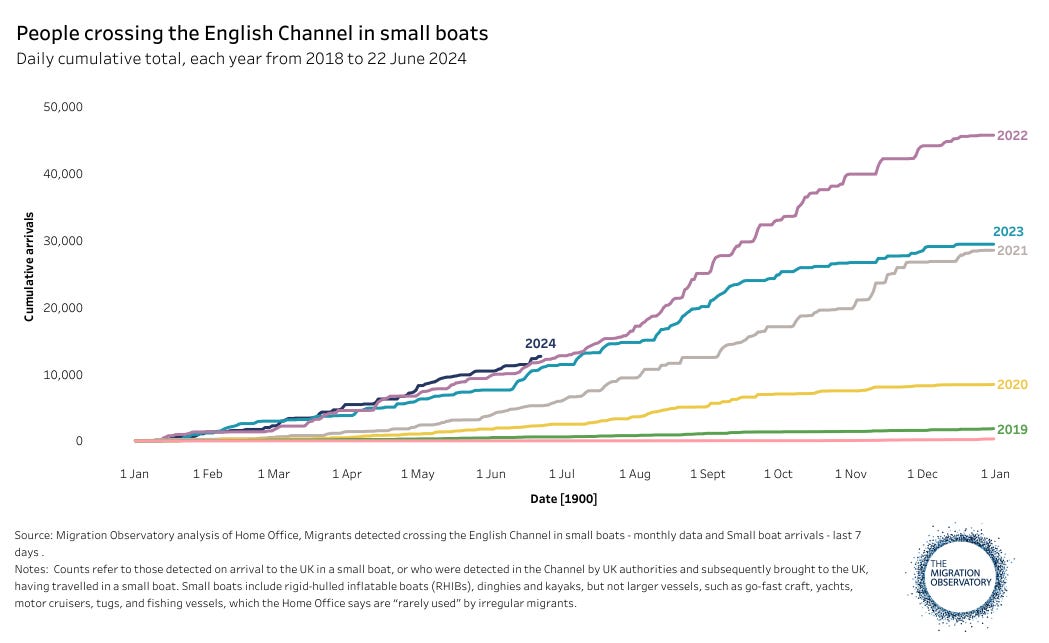How The UK Riots Could Have Been Prevented
Could a Democracy Upgraded political model have helped prevent mass rioting and violence?
On 29 July 2024, Southport and the UK were shocked when three young girls were killed, and eight other children and two adults were injured. They were at a joyful, Taylor Swift-themed dance class for the summer holidays.
It was a scene that turned a moment of joy into an unimaginable horror.
As the incident unfolded, a lack of clear news sparked rumours online and on social media. Who was the killer? Was he an immigrant? Was he Muslim?
The initial shock of the attack soon turned to outrage. This was due to spreading misinformation about the attacker's identity on social media. False claims circulated that a Muslim immigrant, 'Ali Al-Shakati,' was the attacker. They claimed he had entered the UK illegally.
Among the first to share the false name was Channel 3 Now. It claims to be a legitimate news outlet, but its origins are unclear. The BBC says the channel's social media profiles suggest it is based in the US or Pakistan. There is little info about who works for the site.
Merseyside Police confirmed a 17-year-old male was arrested. They did not confirm any other details until later.
Eventually, authorities revealed the suspect's identity as Axel Rudakubana, a 17-year-old British citizen. He was born in Cardiff to Rwandan immigrant parents. This was still enough for some to spark outrage that immigration was the root cause of the murders.
Why and how did these false claims spread so quickly? Why did people still want to blame immigration despite the suspect being in the UK since birth?
Immigration has been a hot-button issue in the UK for some time. No matter your view on immigration, its political importance is evident.
For over a decade, illegal immigration has stoked tensions that can erupt in violence.
This issue has grown since the 2010s. The influx of migrants has become a hot topic in public and political debates.
According to the Home Office, 29,437 people reached the UK in 2023 after crossing the English Channel in small boats. This compares with 45,774 in 2022.
In the first half of 2024, 12,646 small boat arrivals were detected, up 16% on the first half of 2023 (Figure 1).
Reports of crimes by immigrants, a lack of integration, and a shift in 'British culture' have left many Brits uneasy about illegal immigration. They want action. They've been asking for a long time.
The stats back some of this up. Home Office data shows that on 31 March 2024, 10,422 foreign nationals were in custody, making up 12% of the total prison population.
This is a 3% rise in foreign national offenders (FNOs) since 31 March 2023.
Europe seems to be suffering from the same issues with crime and illegal immigrants. A case in point is sexual assaults on women in Sweden by foreign-born nationals from 2000 to 2015 standing at 47.8%.
Despite promises from successive governments, citizens feel little has been done to address these concerns.
The government's response to immigration has often been tough rhetoric. But, its policies have struggled to address the issue's complexities. Boats keep arriving, hotels are filling up, and crime seems to rise.
The lack of a clear, fair immigration policy has betrayed those whose concerns were ignored. This long-standing resentment is a powder keg, ready to ignite. Events like the Southport stabbing trigger the explosive unrest seen across the UK.
On top of this, the government and police response to the Southport riots and similar unrest across the UK faced significant scrutiny, particularly regarding accusations of "two-tier policing." Critics argued that law enforcement's approach differed starkly depending on the racial or ethnic background of those involved in the disturbances, leading to claims of bias and unequal treatment.
This criticism emerged after a group of Asian men attacked the Clumsy Swan pub and local traffic, believing that the pub-goers were part of a rumoured far-right protest group.
The controversy intensified after it was revealed that local Muslim community leaders had been in communication with the police before the incident. These leaders had agreed with the police that a heavy police presence in certain areas might exacerbate tensions rather than alleviate them.
This decision, however, was heavily criticised after the attack on the Clumsy Swan, as many felt that the lack of police intervention allowed the violence to escalate unchecked.
While leaving the Cabinet Office, Sir Mark Rowley, the Met Police Commissioner, was asked about two-tier policing.
Instead of responding, he grabbed the top of the journalist's microphone and threw it to the ground.
Now, I'm not justifying the riots. Punish anyone involved. There is no excuse for that kind of behaviour.
Many were too gullible. Too eager to have their view confirmed. They believed in false information online instead of waiting for official updates.
However, we must explore the causes of the riots and understand how to avoid future rioting and unrest.
These issues stem from misinformation, distrust in government, and old grievances, especially about immigration. The riots, fuelled by false narratives, showed deep unrest. Many felt law enforcement treated them unequally.
This unrest reveals a failing political system. It can't address the public's needs and concerns.
In this context, the Democracy Upgraded model, with 100% independent MPs, emerges as a compelling alternative to the traditional party-based representative democracy.
Direct democracy gives citizens a direct role in decision-making. It could have helped prevent unrest by addressing its root causes. It would have ensured all citizens' voices were heard and respected.
Here's how:
Addressing Long-Standing Grievances through Direct Representation
Deep-seated grievances, particularly around immigration, fuelled the recent unrest. In the past decade, many UK citizens felt ignored regarding immigration. Successive governments had not addressed their concerns.
This frustration grew over time, contributing to the tensions that exploded during the Southport riots.
In a direct democracy with independent MPs, these concerns could be addressed more effectively. Independent MPs would represent their constituents' interests. They would not be bound by party platforms.
It would enable a more responsive immigration policy. It could be tailored to each community's needs and desires. For example, if a community worries about immigration, their MP could propose a bill to address them.
This plan relies on local feedback, not party agendas. Alternatively, people can propose and promote their own ideas.
This process would be similar to the UK Petitions website. MPs then support whatever initiatives the public vote into place.
Reducing Polarisation and Political Manipulation
The current party system often exacerbates polarisation. It pushes MPs to stick to party lines, creating an "us versus them" mentality.
In a direct democracy, independent MPs would be free to work together across 'party lines.' They would focus on solutions that benefit their constituents, not a party agenda.
Less polarisation would help prevent events like the Southport riots. Political factions exploited the unrest to push their agendas. Without party politics, MPs would focus on local issues, not scoring points.
Building Trust and Accountability
The recent riots showed the deep distrust of the government and police.
The Edelman Trust Barometer records a disturbingly low 30% trust score in the UK's political system.
Many citizens feel the current system needs to be more responsive. Those in power care more about their positions than serving the public.
This mistrust is further exacerbated by incidents of perceived biased policing.
In a direct democracy with independent MPs, trust could be restored through transparency and direct input from the people. Independent MPs would be directly accountable to their constituents, creating a system of continuous accountability.
Regular consultations and town hall meetings would build trust between MPs and constituents, reducing the chance of unrest. People need to feel heard.
I firmly believe that even if a majority decision opposes an individual, direct participation in that decision fosters respect and acceptance.
Today, policies are imposed by self-interested parties. Direct democracy empowers citizens to have a genuine say in the outcome.
This transparency and inclusivity would likely boost public trust. People accept decisions that reflect a democratic process, even if they lose.
The critical difference is that the decision would reflect the people's will, not political manoeuvring or partisan interests.
Preventing Future Unrest through Proactive Engagement
A Democracy Upgraded system, with direct democracy and independent MPs would boost public engagement and lower the chance of future unrest. MPs could consult their constituents on pressing issues, allowing for early intervention and the implementation of widely supported solutions.
This would prevent the buildup of unresolved issues that often lead to violence.
Independent MPs could better address challenges by focusing on their communities' needs. This approach would manage potential flashpoints before they escalate and foster a more stable, cohesive society.
Increased Use of Referendums and Quicker Access to Voting
A Democracy Upgraded model would empower citizens to hold more referendums. It would also give them quicker access to vote on critical issues.
This system lets citizens directly influence critical policy decisions. It also allows them to remove MPs or officials who ignore the public's will.
Frequent referendums would keep policies aligned with the public's changing needs and prevent unresolved issues from building up.
Also, allowing recall votes would hold MPs accountable. They would have to be responsive to their constituents.
This system would prevent frustration and resentment from building up. It would reduce the risk of social unrest.
A Democracy Upgraded system with independent MPs could have helped prevent the recent riots. It could have empowered citizens to act directly when needed. It would have fostered a more responsive and adaptive political environment.
P.S. If you enjoyed this article, please share our content with friends! It is really appreciated!









